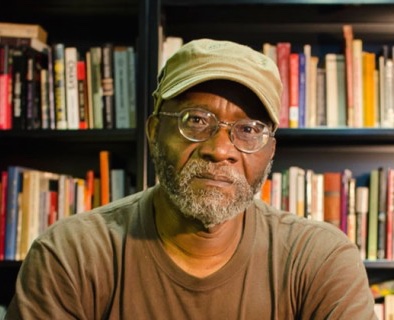Popular Education for Social Change:
The New Poor People’s Campaign
At the fiftieth anniversary of the Memphis Sanitation Workers’ Strike, the Poor People’s Movement, and the assassination of the Rev. Dr. Martin Luther King, Jr., I invited two activist-scholars involved in the New Poor People’s Movement to talk about popular education and movement building for social change.
In Part 1, Willie and Colleen talk about the legacy of the sanitation workers’ strike and the Poor People’s Movement, how they defined leadership and power and “found a way out of no way” in a politically charged 1968, and tell the story of the work of the Kairos Center at Union Theological Seminary in New York City. Part of the mission statement of the Center, based on the Greek word for “the right and opportune time,” is:
“We believe we are living in a kairos moment: A moment of great change and transition, where the old ways of doing things are breaking down, new ones are trying to emerge, and decisive action is demanded.”
In Part 2 Colleen and Willie bring us to the challenges of our current time with specific strategies for educating about systemic poverty. They show us an intersectional approach and offer tools for meeting people where they are. An engaged scholarship is at the root of their activist work. They end on a note of hope, as encouragement and challenge to engage in the work of social change.
about our guest/s
From the Kairos Center website:
“Willie Baptist is a formerly homeless father of three who came out of the Watts uprisings and the Black Student Movement. He has 50 years of experience educating and organizing amongst the poor and dispossessed including working as a lead organizer with the United Steelworkers, as an educator and organizer with the National Union of the Homeless and its educational arm, the Annie Smart Leadership Development Institute, as the Education Director of the Kensington Welfare Rights Union for 10 years, and as a lead organizer and educator for the Poor People’s Economic Human Rights Campaign, as well as many other networks. He is a Board member of the National Welfare Rights Union, the United Workers of Maryland, Picture the Homeless in New York and on the Advisory Committee for the Wildfire Project. Willie is the author of numerous books, articles, and pamphlets including Pedagogy of the Poor, A New and Unsettling Force: Re-Igniting Rev. Dr. Martin Luther King’s Poor People’s Campaign, It’s Not Enough to Be Angry, Lessons from the Poor Organizing the Poor: 5 Main Ingredients and the 6 Panther P’s. Willie presently serves as the Poverty Initiative Scholar-in-Residence and Co-Coordinator of Poverty Scholarship and Leadership Development for the Kairos Center.”
“Colleen Wessel-McCoy has been involved with the Poverty Initiative since 2004 and currently works as Co-Coordinator of Poverty Scholarship and Leadership Development, with Willie Baptist. Originally from Marietta, Georgia, Colleen received her undergraduate degree in religion and social justice from Agnes Scott College. She was part of the inaugural year of the Interfaith Service House and worked for several years as a tenant organizer in Chicago. She and John Wessel-McCoy have two children, Myles and Josephine. She has a MDiv from Union Theological Seminary and earned her Ph.D. in May 2017 in Christian Social Ethics with a dissertation on Martin Luther King, Jr.’s vision for the Poor People’s Campaign of 1968 and its lessons for building a social movement to end poverty today.” Colleen also helped develop the Religion and Social Justice major at Agnes Scott College, along with being the first major in this program.
resources
Poor People’s Campaign website: https://poorpeoplescampaign.org/
https://kairoscenter.org/willie-baptist-on-inequality/
Baptist, Willie and Jan Rehmann. 2011. Pedagogy of the Poor: Building the Movement to End Poverty. New York: Teachers College Press.
Barber, William J., III, with Jonathan Wilson-Hartgrove. 2016. The New Reconstruction: How a Moral Movement Is Overcoming the Politics of Division and Fear. Boston: Beacon.
Theoharis, Liz. 2017. Always with Us? What Jesus Really Said about the Poor. Grand Rapids, MI: Eerdmans.

